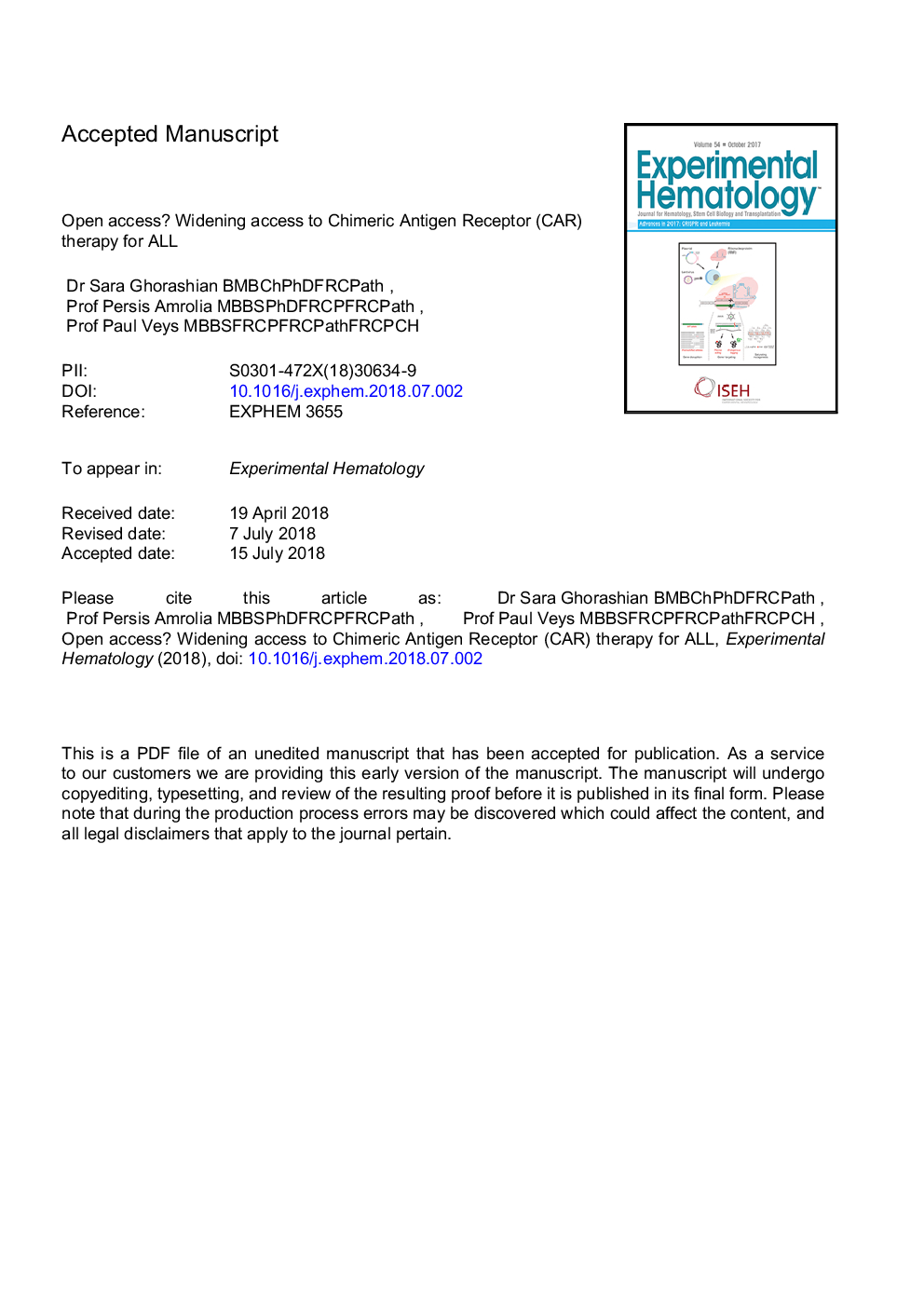| Article ID | Journal | Published Year | Pages | File Type |
|---|---|---|---|---|
| 11010760 | Experimental Hematology | 2018 | 23 Pages |
Abstract
T cells that are genetically modified to express chimeric antigen receptors (CARs) specific for CD19 show great promise for the treatment of relapsed/refractory acute lymphoblastic leukemia (ALL). The first U.S. Food and Drug Administration approval of a cellular cancer therapy in 2017, Novartis's CD19-targeting CAR T-cell product Kymriah⢠within the context of relapsed/refractory pediatric ALL, followed rapidly by approval of Kite's Yescarta⢠and, more recently, Kymriah⢠for diffuse large B-cell indications in adults, highlights the pace of progress made in this field. In this review, we will consider the latest evidence from CAR T-cell therapy for B-lineage ALL. We discuss the barriers to CAR T-cell therapy for ALL patients and give a perspective on the strategy we have taken to date to widen access to CAR T-cell therapy for UK pediatric patients with high-risk ALL.
Related Topics
Life Sciences
Biochemistry, Genetics and Molecular Biology
Cancer Research
Authors
Sara Ghorashian, Persis Amrolia, Paul Veys,
